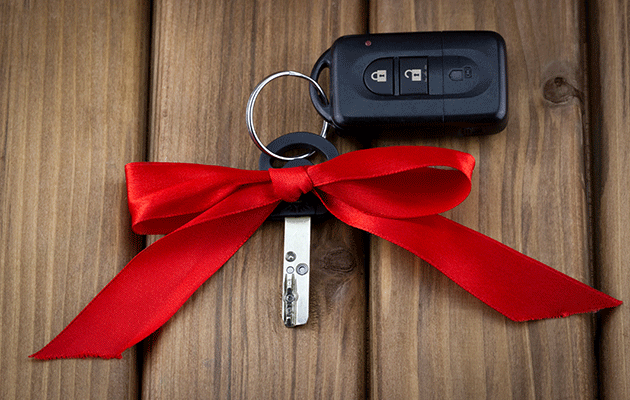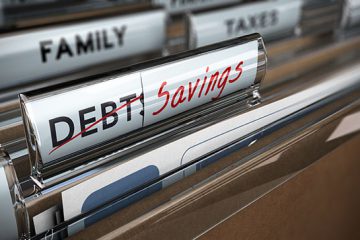Looking to buy your first car? Whether you’re buying a new or used car, it’s going to be one of the biggest purchases you’ll ever make in your life, so it’s important that you do your research. Knowing the costs involved in buying a car – the upfront, yearly and ongoing costs – will help you narrow down your research and know what to look for in a car, as well as help you to budget properly.
To make sure you end up with a good, affordable car, here are some of the costs to consider when buying your first car:
Upfront costs
Purchase price
The purchase price of your car will depend on whether it’s new or used, the type of car you need, and how much you can afford. A new car is more expensive than a used car, and a manual car is usually cheaper than an automatic car.
Also search for cars online to check that the value of your car is within the correct price range. Cars can range in price from several hundreds of dollars to tens of thousands of dollars, and even up to hundreds of thousands of dollars.
Vehicle inspection and test drive
Getting a professional to inspect a used car will reveal any problems that can be more expensive to fix later on. A vehicle inspection could cost you a few hundred dollars, but you can get a discount through your state or territory’s motoring club if you’re a member, like the Royal Automobile Club of Victoria (RACV) or the NRMA.
Getting a test drive can also help you find any other issues with the car before you buy it.
Financial searches and car history reports
For a small fee, you can search on thePersonal Property Securities Register (PPSR) to see if a used car’s owner still owes money on it. If they do and they default on a loan, your car could be repossessed even after you buy it.
For a bigger but still small fee, you can also get acar history report that includes a financial encumbrance search, an approximate valuation, odometer readings, write-off history, and reports if the car is stolen.
Stamp duty
This is a large one-off cost that’s calculated as a percentage of the car’s purchase price that goes back to the government. If you’re going to buy a new car, some deals may include stamp duty in the price of the car. If you’re paying interest on a loan to pay for your car, this may or may not be a good deal.
Yearly costs
Roadside assistance
This should be taken out when you first buy your car and after that you’ll have to pay a yearly membership fee. The motor vehicle club in your state or territory, such as RACV or the NRMA, offers its members roadside assistance.
Registration
Every car in Australia is required to be registered by law and registration is a huge ongoing cost that you have to pay every year. You can get a discount from the Transportation department in your state or territory for annual registration.
When you buy a used car, you have to budget for the transfer of registration as well as to renew the registration if it’s going to expire soon. If you’re buying a new car, the registration cost will be included in the purchase price. The registration cost depends on the model and age of your car and where you live. Also, a big car will have higher costs for registration than a small car.
Insurance
When you own a car in Australia, you need to have compulsory third party (CTP) insurance as part of your registration, which covers you if you’re legally liable for injury caused to another party in an accident.
You can also consider getting 1) comprehensive car insurance, which takes care of the repairs or replacement of your car and property, as well as the other party’s, 2) third party insurance – covers damage to another party’s property or car, or 3) third party insurance with fire and theft – also insures your car if it’s damaged by fire or stolen. Your insurer may offer you a discount if you have all your insurances with them, such as home and contents insurance.
How much you pay for insurance – from a few hundred dollars to a few thousand – will depend on your age (car insurance for younger drivers is more expensive), driving history, where you live, as well as your car’s engine size and model (if you have a big and powerful car, you’ll need to pay more to insure it). A new car is also cheaper to insure than a used car.
Ongoing costs
Servicing and maintenance
Servicing and maintaining your car are ongoing costs to consider, which include paying for petrol, new tyres (usually the more expensive, the better quality), an oil and filter change, an annual test drive and inspection, and repairs if you get into an accident or something goes mechanically wrong with your car.
A new car is cheaper to run and more fuel-efficient, while a used car requires more maintenance and petrol. A manual or cheaper car costs less to repair than an automatic or expensive car. A small car is good for driving around the city and if you want to save on fuel, whereas a big car will have higher costs for servicing, tyres and petrol.
Many car manufacturers offer capped price servicing, so you know upfront the costs you’re expected to pay.
Loan repayments and interest
If you’re using a car loan to pay for your car, remember that you’re not just repaying the loan amount, you’re also paying interest so make sure to get a loan with a low interest rate. If you find that you need a loan to pay for your car, contact SRG Finance and we may be able to help.
Other costs
Other fees and charges
These include road costs and taxes, which are often excluded from the advertised car price and can cost an extra couple of thousands of dollars. The specific fees and charges that you may have to pay for are a roadworthy certificate (if the car doesn’t already have one), dealer charges (number plates, shipping, etc.), GST, and luxury car tax (if applicable).
Don’t forget road tolls, parking costs, and driver’s licence fees!
Private sale, licensed dealer or auction
In a private sale where you buy a car directly from the owner, you won’t get a warranty. If anything wrong happens to the car, you’ll have to pay for it yourself.
Buying from a licensed dealer is more expensive than a private seller, but you’ll get a warranty and the car won’t be taken away from you if the previous owner still owes money on it. Also, if you change your mind after signing the contract, you might lose some of your deposit or need to pay a percentage of the sale price.
Buying a car at an auction is cheaper but there’s no warranty, test drives or inspections. You may also have to pay a 10% or $500 deposit and then pay the rest within a short period of time.
Now that you know the costs of buying your first car, you should be able to budget your money and pay for your car, both now and in the future.
Happy car hunting!



